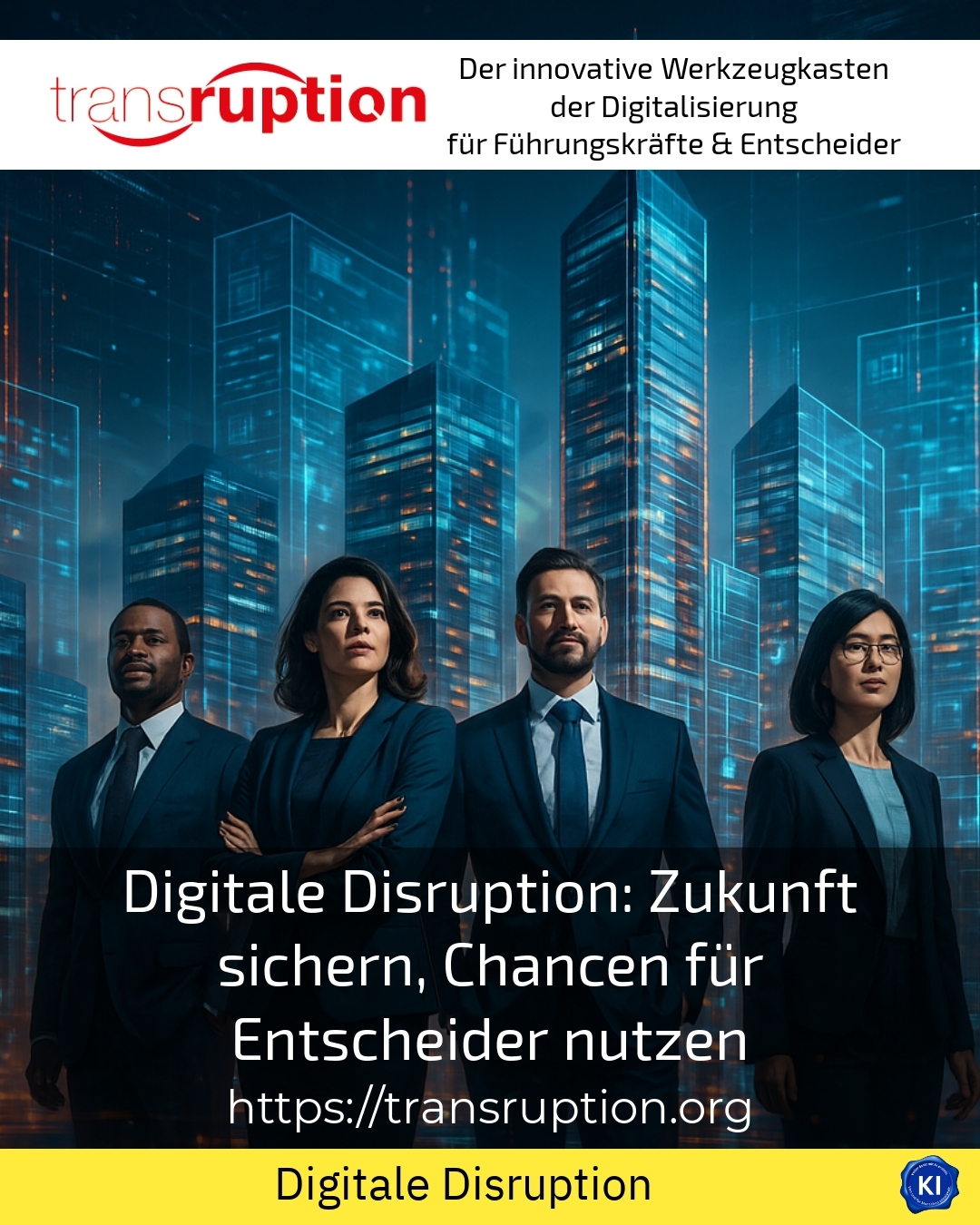In today's digital world, we are experiencing a profound change that is often referred to as digital disruption. This radical upheaval of business models and markets is driven by the development and application of digital technologies. Innovative start-ups and companies are revolutionising existing industries by offering new forms of interaction, transactions and communication. Such changes not only create new opportunities for companies, but also force established providers to reposition themselves in order to remain relevant.
What is digital disruption?
Digital disruption refers to the fundamental change of markets and business models through digital innovations. These changes often lead to a complete restructuring of the affected markets and create new market opportunities and competitive landscapes [1][3][5]. Well-known examples include companies such as Airbnb, Uber and Netflix, which have disrupted traditional business models in the areas of accommodation, transport and entertainment [2][4].
Disruptive business models
Disruptive business models are a form of digital disruption in which existing structures are replaced by innovative approaches. Companies such as Uber and Airbnb have shown that it is possible to open up large markets without owning large resources [4]. For example, Airbnb enables private providers to make their accommodation available, challenging the traditional hotel industry [8]. Similarly, Uber has revolutionised the taxi industry with an efficient platform [9].
Another example of disruptive business models is Amazon. This company has revolutionised the retail sector by offering products online and delivering them directly to your door, putting pressure on traditional bricks-and-mortar retailers [5].
Digital disruption: opportunities for decision-makers
Digital disruption offers decision-makers the opportunity to tap into new markets and develop disruptive innovations. Companies that adapt and utilise innovative digital technologies can achieve significant competitive advantages [5]. A key strategy is to develop customer-centric solutions that override traditional forms of interaction and sales. This includes creating more efficient platforms that connect customers and providers, as is the case with Uber and Airbnb [4].
Practical approaches to overcoming digital disruption
In order to be successful in an environment characterised by digital disruption, companies must react proactively to change. This includes continuously analysing the impact of digital technologies on existing industries and developing their own innovations [13]. Companies should also understand the role of customers and place their expectations at the centre of their strategies [11].
BEST PRACTICE at the customer (name hidden due to NDA contract)A well-known company in the food industry has expanded its customer base and improved the efficiency of its supply chain by introducing a digital ordering and delivery service.
Securing the future through digital disruption
Digital disruption offers companies the opportunity to actively participate in the changes and utilise new opportunities. By developing innovative business models and technologies, companies can not only revolutionise existing markets, but also open up completely new segments [3][5].
My analysis
Overall, digital disruption is a key issue that affects companies in almost all sectors. By adapting to digital innovations and creating disruptive business models, companies can prepare for future challenges at an early stage and capitalise on new market opportunities.
Ultimately, it is crucial that decision-makers recognise the importance of digital disruption and actively respond to it. Only then can they ensure that their companies remain successful in an increasingly dynamic digital world.
Further links from the text above:
Digital disruption - Dr Dr Jörn Lengsfeld
Disruptive business models: creating new markets
Digital disruption in online marketing: an explanation
Digital disruption: How to make your company crisis-proof
For more information and if you have any questions, please contact Contact us or read more blog posts on the topic TRANSRUPTION here.
















